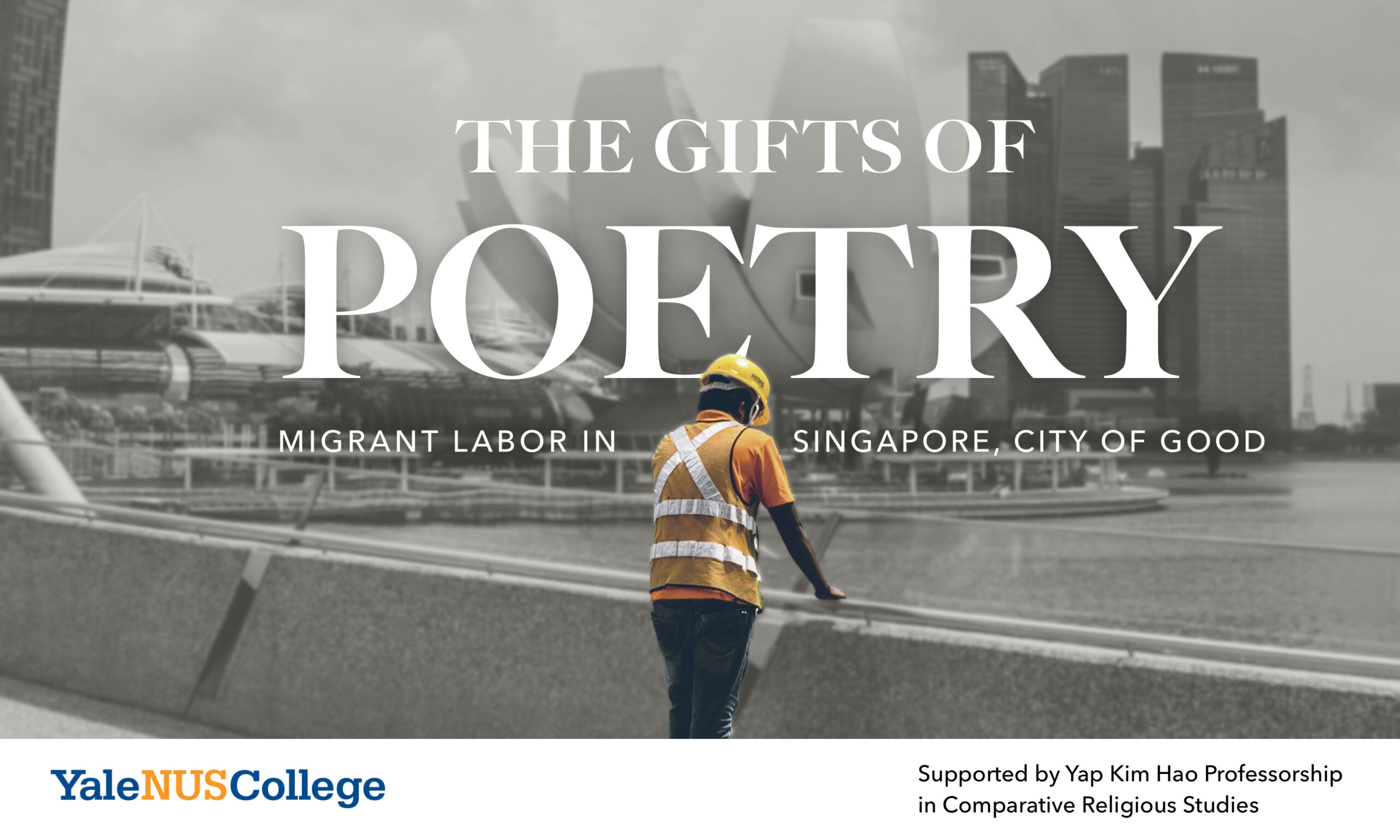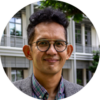


Over the past few years, many low wage migrant workers in Singapore have gained prominence for their poetic talents. Known as “migrant poets,” these workers have won literary competitions, published anthologies that became instant bestsellers, and performed at nationally-significant venues.
Join us as Associate Professor Nur Amali Ibrahim situates the rise of the migrant poets within Singapore’s ongoing efforts to become a City of Good, where emphasis is placed on extending care to the socially disadvantaged. While working in Singapore, migrant poets have been given the gift of status – the ability to become popular and respected for their artistry. But the effect of the poems written by these workers cannot be easily controlled. The poems present to Singapore audiences the gift of witnessing—the ability to see the injustices and exploitation occurring to migrant workers and the opportunity to do something about it. This talk considers the possibilities that are presented by these poems, and more broadly, by a political context where the state governs through care.
The lecture is supported by the Yap Kim Hao Professorship in Comparative Religious Studies.
About the speaker
Associate Professor Nur Amali Ibrahim
Associate Professor of Social Sciences (Anthropology), and Head of Studies, Anthropology, Yale-NUS College
Nur Amali Ibrahim is an Associate Professor of Social Sciences (Anthropology), Head of Studies of Anthropology, and Yap Kim Hao Professor of Comparative Religious Studies at Yale-NUS College. He is a political anthropologist who is broadly interested in civil society, social movements, and Southeast Asia. His first book, Improvisational Islam: Indonesian Youths in a Time of Possibility (Cornell University Press, 2018), examines Muslim student activism in Indonesia following the nation’s political transition from authoritarianism to democracy. Currently he is writing a book titled Border Care: Migrant Labor in Singapore, City of Good.
About the discussant
Associate Professor Seema Golestaneh
Associate Professor of Near Eastern Studies, Cornell University
Seema Golestaneh is an associate professor in Cornell University’s Department of Near Eastern Studies. Her research, situated at the nexus of anthropology and religious studies, is focused on expressions of contemporary Islamic thought in the Persian-speaking world. She is particularly interested in how metaphysical experiences make themselves known in the socio-material realm via aesthetics and epistemology. Her book, Unknowing and the Everyday: Sufism and Knowledge in Iran, examines the social and material life of gnosis (ma’arifat) for disparate Sufi communities in Iran. Essentially an anthropology of the imagination, her work also relies heavily on textual ethnography and analysis, emphasising the importance of hermeneutics within the Iranian socio-theological sphere. She is currently at work on a project tentatively entitled Utopia Lost?: Afghan Theories of Radical Poetics and Islamic Governance. Drawing largely from archival materials and oral histories, this project investigates the dreams and aspirations of Afghan intellectuals in the late 1980s and 1990s for forms of government that did not come to pass.



